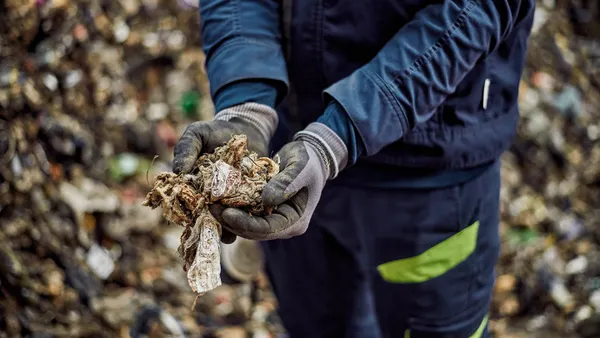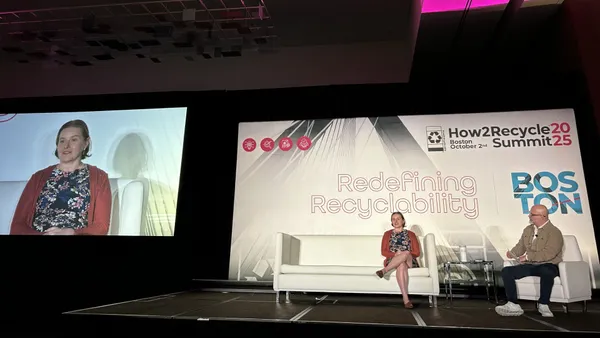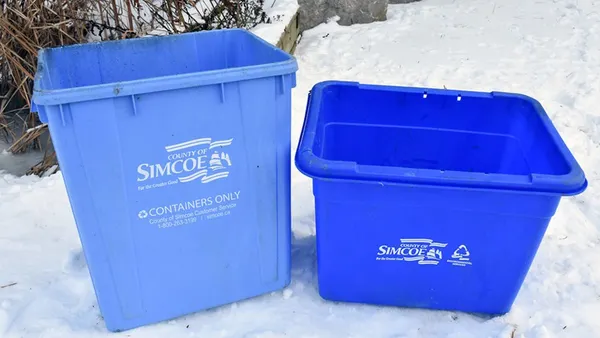Dive Brief:
- Pennsylvania Governor Tom Wolf said he will veto a state bill (HB 1071) that seeks to preempt municipalities from passing any form of ban or fee on plastic bags, as reported by CBS Philly.
- "It would be inconsistent for me," said Wolf after an unrelated bill signing on June 21. "I believe that we ought to be allowing local officials to make decisions that they in their estimation and their constituents — local constituents — feel are in their best interests." Wolf also cited potential issues with a state Supreme Court ruling about local authority over environmental regulations.
- The original sponsor of this bill, Representative Frank Farry, told Penn Live he would not be commenting until the governor's official veto message was issued. Because the bill passed by tight margins in both legislative chambers, it's considered unlikely that enough votes could be mustered for a veto override.
Dive Insight:
No municipality in Pennsylvania currently has any type of bag ordinance in place, though many of them spoke up against this bill in a sign that they could try to pass such ordinances in the future. In addition to Philadelphia — which has seen bag legislation proposed in the past — Pittsburgh, York and Erie also voiced their concerns.
For cities such as Philadelphia that are pursuing new waste diversion goals, plastic bags rank far lower on the priority list than organics or other items. Yet many environmental groups see limiting their use as a key part of the overall recycling mission both from a symbolic and operational standpoint. While the plastics industry wants to protect manufacturing jobs — a factor in the Pennsylvania state bill discussion — recycling facility operators don't want the bags in their lines. Bag drop-off programs are seen as one way to get around this issue, though their use is still not widespread.
Though it may be seen as a tangential sustainability issue by some in the industry, this bag regulation question is one of the most widely debated waste-related topics in governments around the country right now. Nearly 10 states — Minnesota being the most recent — have signed their own versions of preemption bills and it remains very difficult to pass any type of state-level packaging regulation. Small municipalities in Massachusetts have seen a lot of success on that front recently, though larger cities such as New York have been blocked by state legislators.










